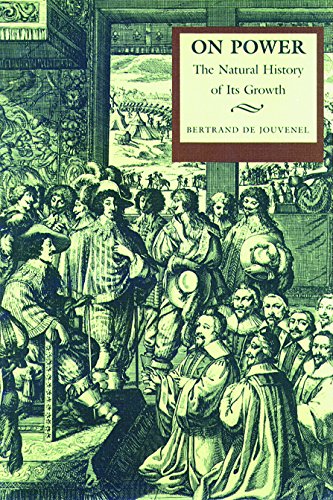The work of the Revolution was the restoration of absolute monarchy.
So writes Bertrand de Jouvenel in his book On Power: The Natural History of its Growth. He is writing of the French Revolution. While it took somewhat longer for the effects to become visible, the words could just as easily apply to the American Revolution.
What is de Jouvenel saying? What ever happened to liberté, égalité, fraternité? All men are created equal? Reason over the church?
Current Prices on popular forms of Gold Bullion
The checks and balances were all swept away, and here, as Mirabeau saw, lay the king’s great opportunity.
In the course of a single year liberty has triumphed over more of the prejudices impeding authority, has wiped out more enemies of the throne, and has obtained more sacrifices for the national prosperity, than the royal authority could have done in several centuries. I have always called attention to the fact that the obliteration of the clergy, the Parliaments, the state lands, the feudal nobility, the provincial jurisdictions and every species of privilege was a victory both for the nation and for the monarchy.
Finally: all men created equal, leaving no man powerful enough to stand up to Power. When competing powers and authorities are removed, all that is left is a monopoly. The Revolution took power not only from the king but from every other source of competing power. It consolidated this power in one place.
 On Power
Best Price: $12.00
Buy New $12.95
(as of 03:30 UTC - Details)
On Power
Best Price: $12.00
Buy New $12.95
(as of 03:30 UTC - Details)
The logic of a revolutionary epoch is to be found, not in the ideas, but in the facts. The central fact is the erection of a new Power…
…because there will be no vacuum.
The boundless authority of Napoleon was the goal towards which the entire upheaval had been proceeding from the day on which the ambition of Orleans or the vanity of Lafayette set it in motion.
One could suggest that the United States achieved this goal with Lincoln.
The despot replaced the demagogue. Both had the will to tyranny; both had a common enemy – local custom. According to Benjamin Constant:
The interests and memories which spring from local customs contain a germ of resistance which is so distasteful to authority that it hastens to uproot it. Authority finds private individuals easier game; its enormous weight can flatten them out effortlessly as if they were so much sand.
And in this, we find the reasons behind everything from open borders to LGBTLMNOP rights. To fight custom and culture is to welcome tyranny.
The King is Dead; Long Live…Democracy?
Regarding democracy, de Jouvenel writes:
Conceived as the foundation of liberty, it paves the way for tyranny. Born for the purpose of standing as a bulwark against Power, it ends by providing Power with the finest soil it has ever had in which to spread itself over the social field.
The most important question for the liberated masses? Where is the law to come from?
The Middle Ages knew nothing of this difficulty; for them the law was fixed, the rule a premise. But from the time that the divine law was rejected as superstition, and custom as mere routine, the law had to be made.
And who dares deny that it is in this (man) made a law where we find every sort of mischief.
“The English Parliament,” it has been said by some wit, “can do anything except change a man into a woman.”
“Mmmm…pardon me…way in the back here….”
My…how times have changed.
The Libertarian Dilemma
Proclaiming as it does the sovereignty of each man over himself, its sufficient requirement is that every member of society should have a domain proper to himself in which to be his own lord.
Such is the libertarian idea as described by de Jouvenel. Yet, he offers (as do I), that something or someone must be “in charge around here”; the choice of that “something” or “someone” will allow for either liberty or tyranny.
I suggest that (in a world populated by humans) the most libertarian “something” is based on custom and culture and that the most libertarian “someone” is the head of each family (however narrowly or expansively chosen).
It is the law as understood in the Middle Ages – the old and good law from custom; with governance, relationships to be found in the family. From Tocqueville:
Everywhere men are leaving behind the liberty of the Middle Ages, not to enter into a modern brand of liberty but to return to the ancient despotism; for centralization is nothing else than an up-to-date version of the administration seen in the Roman Empire.
Reprinted with permission from Bionic Mosquito.




